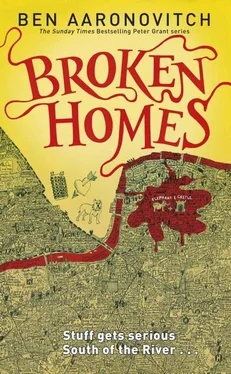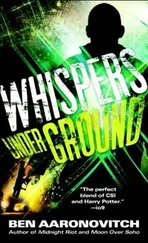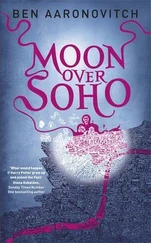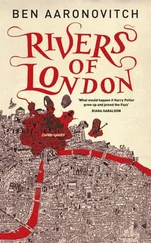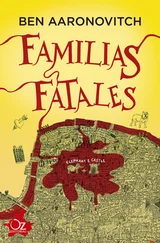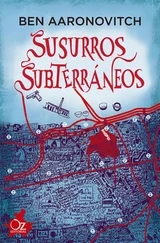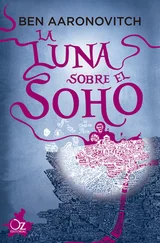Ben Aaronovitch - Broken Homes
Здесь есть возможность читать онлайн «Ben Aaronovitch - Broken Homes» весь текст электронной книги совершенно бесплатно (целиком полную версию без сокращений). В некоторых случаях можно слушать аудио, скачать через торрент в формате fb2 и присутствует краткое содержание. Год выпуска: 2013, ISBN: 2013, Издательство: Orion, Жанр: sf_fantasy_city, на английском языке. Описание произведения, (предисловие) а так же отзывы посетителей доступны на портале библиотеки ЛибКат.
- Название:Broken Homes
- Автор:
- Издательство:Orion
- Жанр:
- Год:2013
- ISBN:9780575132498
- Рейтинг книги:4 / 5. Голосов: 1
-
Избранное:Добавить в избранное
- Отзывы:
-
Ваша оценка:
- 80
- 1
- 2
- 3
- 4
- 5
Broken Homes: краткое содержание, описание и аннотация
Предлагаем к чтению аннотацию, описание, краткое содержание или предисловие (зависит от того, что написал сам автор книги «Broken Homes»). Если вы не нашли необходимую информацию о книге — напишите в комментариях, мы постараемся отыскать её.
Broken Homes — читать онлайн бесплатно полную книгу (весь текст) целиком
Ниже представлен текст книги, разбитый по страницам. Система сохранения места последней прочитанной страницы, позволяет с удобством читать онлайн бесплатно книгу «Broken Homes», без необходимости каждый раз заново искать на чём Вы остановились. Поставьте закладку, и сможете в любой момент перейти на страницу, на которой закончили чтение.
Интервал:
Закладка:
Phillip had an accent which I thought was Canadian but which turned out, when I asked, to be Californian. San Franciscan to be precise. His mum was Filipino but had moved to California in her twenties and had met Phillip’s dad, whose parents had been Filipino but had himself been born in Seattle, while both were visiting relatives in Caloocan. So we did a bit of bonding over a discussion of the joys of growing up with the extended diaspora family and mothers who unreasonably felt that a young man’s priorities should be schoolwork, household chores and family commitments. Time enough for a social life once you’ve finished university, got married and provided grandchildren. The obvious contradiction never seems to bother them.
‘We were working on the grandchildren,’ said Phillip.
Adoption or surrogacy, I wondered? It didn’t seem the time to ask.
His mum brought us coffee on an enamelled tray with kittens painted on it. I waited until she’d bustled back out before asking how he’d come to move to the UK and meet Richard Lewis.
‘I was a dot.com millionaire,’ he said simply. ‘Co-founder of a company that you’ve never heard of, which was bought out by a bigger company that I signed a non-disclosure agreement with. They gave me a huge share option which I cashed in just before the market went south.’
He gave me a thin smile. Obviously this was his standard spiel with its appropriate pauses for rueful laughs and self-deprecating chuckles — only this was the first time he’d told it with his partner dead.
‘I always worry when there’s too much of a good thing,’ he said.
Having made his millions he headed to London, for the culture, the nightlife and most of all because, as far as he knew, none of his immediate relatives lived there.
‘I love my family,’ he said, glancing after his mother. ‘But you know how it is.’
He’d met Richard Lewis at the Royal Opera House during a performance of Verdi’s Un Ballo in Maschera . He’d gone on impulse and had been in the standing-room-only section when a well-dressed stranger had turned to him and said, ‘God this is a bloody awful performance.’
‘He said that he could think of at least five things that he’d rather be doing,’ said Phillip. ‘I asked him what was on the top of the list and he said, “Well, a stiff drink would be a good start, don’t you think?” So off we went for a drink and that was it, cupid’s arrow right between the eyes.’
But it hadn’t quite been love at first sight. Phillip hadn’t flown across the pond with a large fortune just to fall for the first half-decent proposition. ‘He worked at it,’ said Phillip. ‘He was methodical and patient and-’ Phillip looked away and stared at a blank piece of wall for a moment before taking a breath. ‘Really fucking funny.’
Three months later they were married, or more precisely they entered into a Civil Partnership, with due ceremony, celebration and a suitable pre-nup.
‘That was Richard’s idea,’ said Phillip.
I judged that this was about as good a time as any to wheel out the questionnaire. It had been drawn up by Dr Walid and Nightingale to uncover evidence of real magical practice — as opposed to an interest in the occult, ghost stories, fantasy novels and that old time religion. Dr Walid had thrown in some questions from established psychometric and sociological surveys to make it sound kosher. I called it the Voigt-Kampf test even though only Dr Walid got the joke — and he had to look it up on Wikipedia.
‘It’s to provide background about these. . tragic incidents,’ I said. ‘To see what can be done to prevent them in the future.’
Up till now I’d mostly given the spiel to potential Little Crocodiles who I was pretending to interview on a totally random basis. Watching Phillip’s face, I decided we were going to have to dream up a whole new strategy for dealing with bereaved relatives. Either that or Dr Walid could come and administer his own bloody tests.
Phillip nodded as if this was all perfectly reasonable — perhaps he was just pleased we were taking an interest.
The test started with a couple of psychological questions as warm up, and I almost skipped number five, ‘Did the subject indicate dissatisfaction with any aspect of his life?’ But Dr Walid had stressed consistency in application.
‘I didn’t think so,’ said Phillip. ‘Not until I saw the tape of the accident.’
‘They let you see it?’ I asked.
‘Oh, I insisted,’ said Phillip. ‘I thought there was no way that Richard would kill himself. What reason would he have? But it’s hard to argue with the evidence of your eyes.’
I moved onto the ‘spiritual’ questions which revealed that Richard had almost been an Anglican in the same way that Phillip had almost been a Catholic. Phillip told me proudly that his mum had ceased to be a practising Catholic the day after he came out.
‘She says she will go back to the Church the day it apologises,’ he said.
Lewis hadn’t had any interest in the occult beyond that needed to appreciate Wagner or the Magic Flute and he didn’t own any books about magic, or many books at all.
‘He gave away most of his old books when we moved here,’ said Phillip. ‘And he said his Kindle was much handier for the commute to London. Now I resent all the hours he spent on that train. But he loved his home here and he wouldn’t give up his job.’
Not that Phillip could understand why. ‘I know he didn’t get anything in the way of job satisfaction,’ he said. Phillip could have certainly used him in his own company, which arranged finance for high-tech start-ups. ‘He hated working in London, said he hated the city and I begged him to quit for like five years, but he wouldn’t.’
‘Did he say why?’ I asked.
‘No,’ said Phillip. ‘He always changed the subject.’
Up till then I’d been doodling, but now I started taking notes. Keeping a secret always makes the police suspicious. And while we’re willing to believe in the possibility of a totally innocent explanation, we never think that’s the way to bet.
I asked whether there was any aspect of Richard’s work as a town planner that he’d talked about more than others, but Phillip hadn’t noticed. Nor had Richard complained about incidents of corruption or coming under any pressure to influence a planning decision one way or the other.
‘And whatever it was keeping him there,’ said Phillip, ‘he was obviously over it, because he told me that he was quitting.’ He looked away from me and fumbled for his tea cup to cover his tears.
The mother bustled back in, saw the tears and gave me a poisonous look. I worked my way quickly through the last of the questionnaire, offered my condolences once more, and left.
Something fishy and possibly supernatural had happened to Richard Lewis but since he obviously wasn’t a practitioner I couldn’t think what his connection with the excitingly terminal world of modern magic might be. When I got back to the Folly I wrote it up and filed the requisite two reports. The thinking in police work with this sort of non-lead is that either some other completely different line of inquiry will prove unexpectedly connected or you will never find out what the fuck was going on.
My gut instinct was that we were never going to find out why Richard Lewis threw himself under a train — which just goes to show why you should never trust your gut.
4
After car-related incidents, burglary and theft are the most common crimes which MOPs, that’s members of the public to you, are subject to. It’s also the one they moan about the most, mainly because they know that the clear-up rate for burglary is low.
Читать дальшеИнтервал:
Закладка:
Похожие книги на «Broken Homes»
Представляем Вашему вниманию похожие книги на «Broken Homes» списком для выбора. Мы отобрали схожую по названию и смыслу литературу в надежде предоставить читателям больше вариантов отыскать новые, интересные, ещё непрочитанные произведения.
Обсуждение, отзывы о книге «Broken Homes» и просто собственные мнения читателей. Оставьте ваши комментарии, напишите, что Вы думаете о произведении, его смысле или главных героях. Укажите что конкретно понравилось, а что нет, и почему Вы так считаете.
